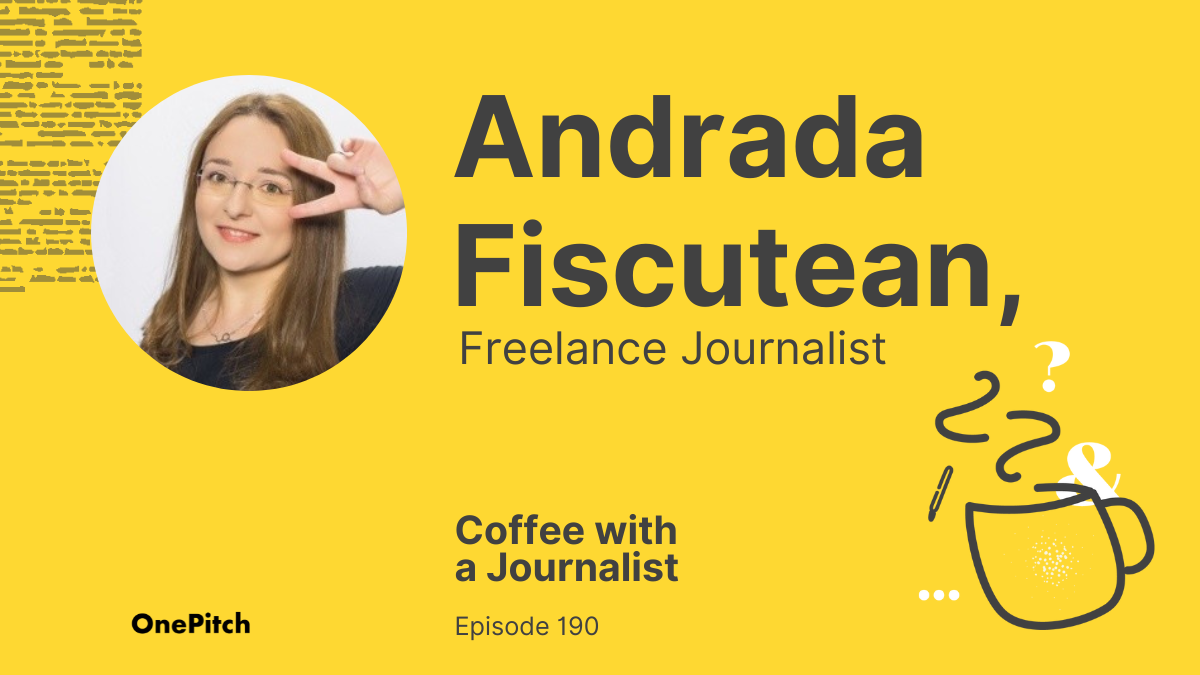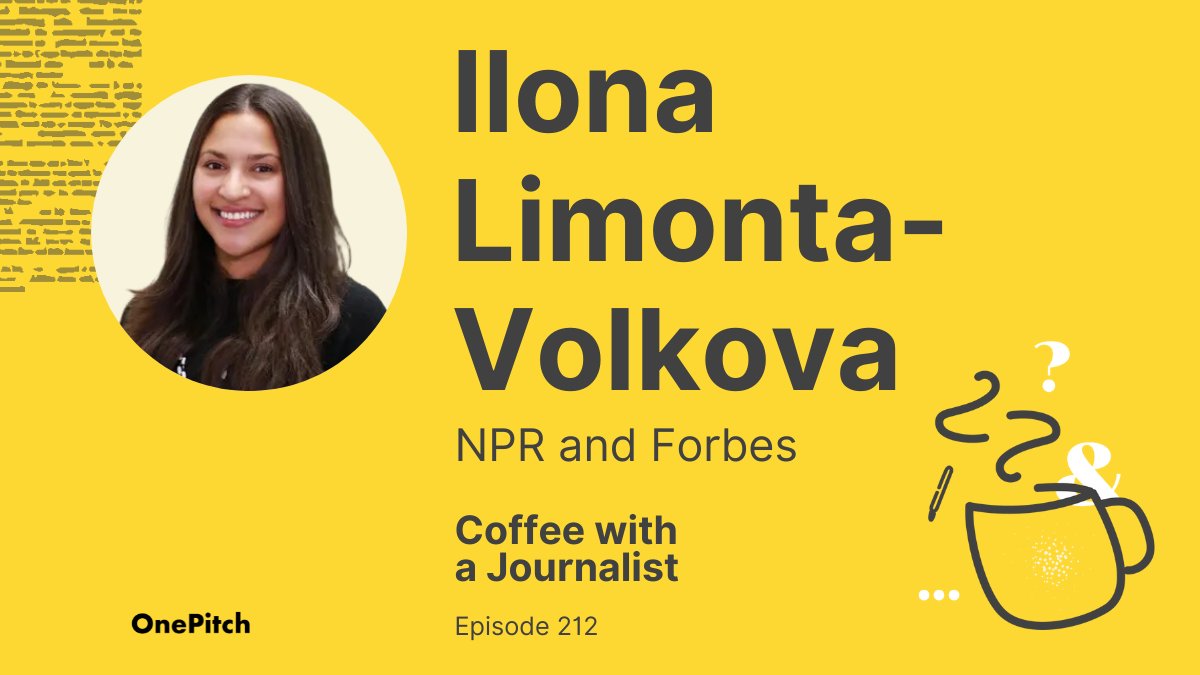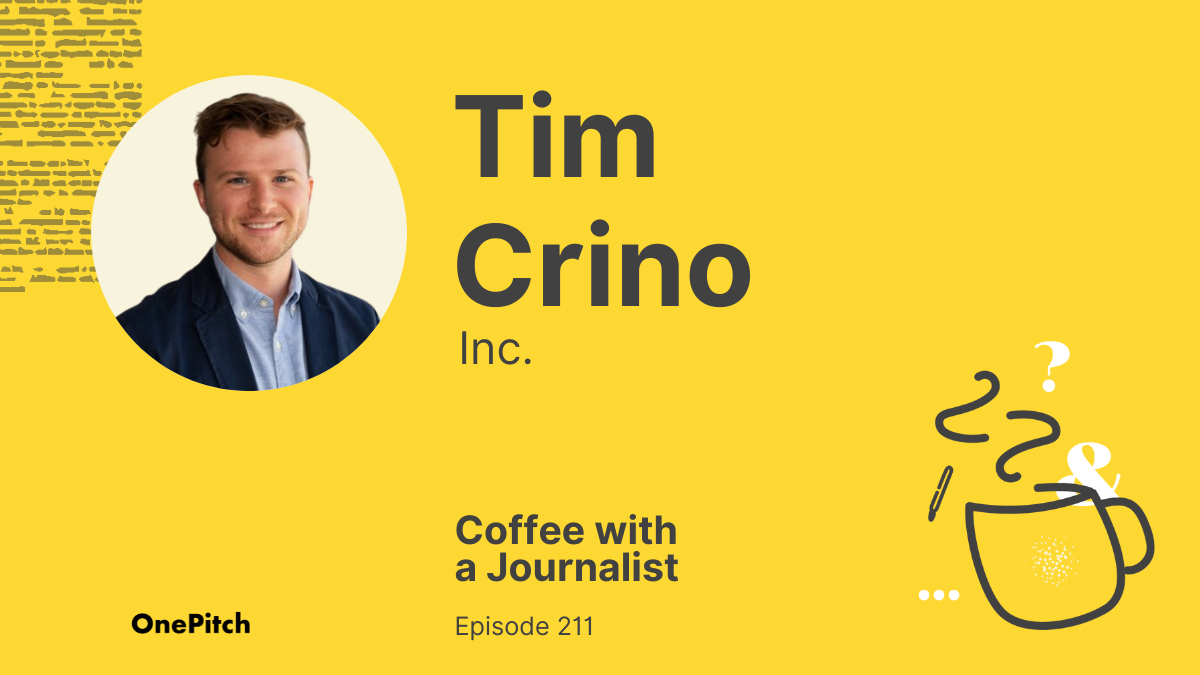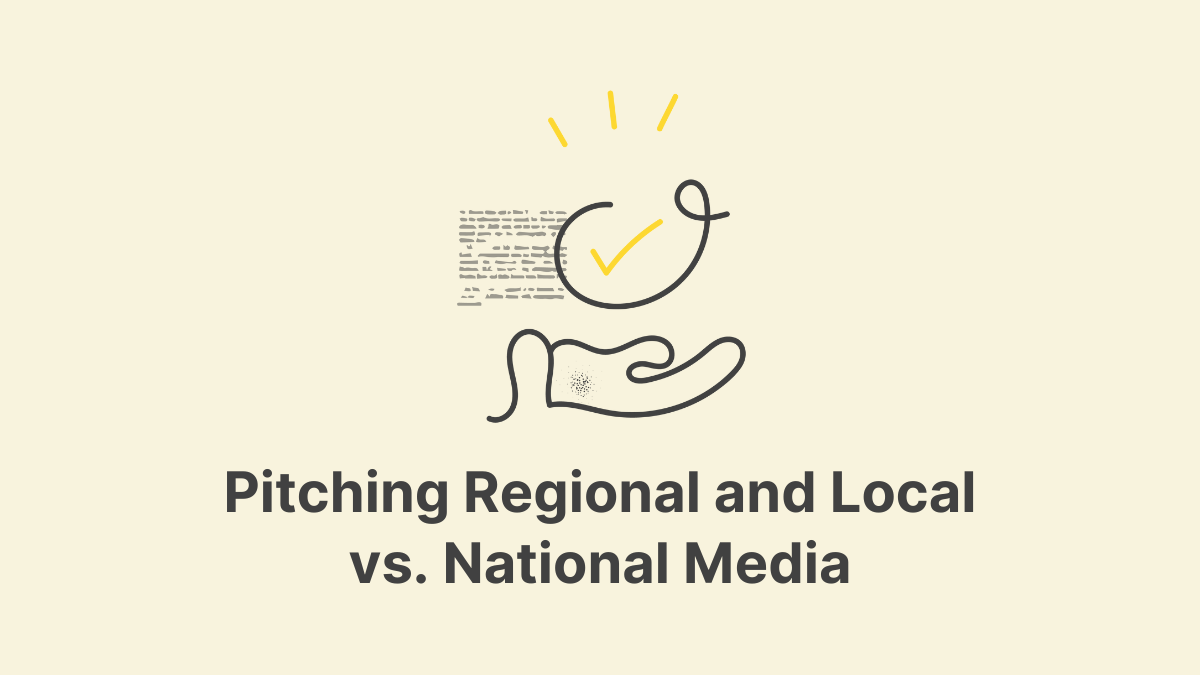Ilona Limonta-Volkova is the host of Money Memories, an NPR podcast, as well as a contributing...
×
Coffee with a Journalist: Andrada Fiscutean, Freelance Journalist
- 10/31/2023
- OnePitch
- Media Insights
Andrada Fiscutean is a freelance science and technology journalist. She writes for publications including Ars Technica, Vice Motherboard, ZDNet, Nature, CSO Online, and more.
During the episode, Andrada talks about what it's like being a journalist based in Romania, covering stories that most staff writers wouldn't consider, why it's important to include your hook within the first three sentences of your pitch, and more.
Follow her on Twitter and LinkedIn.
Click below to listen to the full conversation and read below for highlights from the interview:
What Makes Pitches Stand Out
[00:07:13] BB: Okay. For those pitches that you do receive, do you read every single one? Do
you trash them? Do you put them in a folder somewhere?
[00:07:23] AF: So there's a quick decision that I make when I see an email, and that decision is
yes, no, or maybe. If it's a clear no, then I'm going to delete that pitch completely. If it's a clear
yes, then I'm just going to reply to that person immediately. So I really want to do that story. But
most of them fall into the maybe category, and I do not delete them. I just let them in my inbox.
[00:07:49] BB: You just let them be there. Okay.
[00:07:50] AF: Yes. I try to – whenever I'm doing a story that's on a specific topic, I'm looking if I
received pitches that are somewhat connected to what I'm doing because this helps me reach
out to potential sources.
[00:08:07] BB: Speaking of sources, is that the best type of pitch for you? You want to see
cybersecurity, for example, experts, domain experts in government? I mean, I don't know. Is
experts who you look for?
[00:08:17] AF: Yes. I'm mostly looking for experts, and I'm specifically interested in experts who
are really, really passionate about what they are doing. Because in addition to writing, like the
more technical aspects of it, I'm also interested in writing a little bit maybe, even if it's just a line
or two about the person.
[00:08:40] BB: A line or two about the person, like their background, what makes them credible,
and so forth.
[00:08:45] AF: Yes. What makes them wake up in the morning and be excited about what they
are doing.

Want to pitch Andrada and other journalists like her?
Click below to sign up for OnePitch and use these insights in your next pitch!

How Freelancers Use Exclusives
[00:11:46] BB: Ah, very good. Okay. Thank you for that insight. Embargoes or exclusives, are
either of those of interest to you?
[00:11:54] AF: I'd say exclusives, specifically, because I'm a freelancer, and I need to do
something else. I need to cover something else, not something that – yes, stuff reporters do. So,
yes, exclusives, I really like those. I think everyone does. I don't mind if the story is going to take
me two or three months to research.
[00:12:17] BB: Yes. Oh, two or three. By the way, does that actually happen sometimes? You're
in a story that long of just the research?
[00:12:24] AF: Yes, it does. The North Korea piece, for instance, that I mentioned beginning of
the interview took more than a year to research because it's difficult to find sources. You really
want to check everything, so you don't make a mistake. There isn't a lot of information on this
specific topic of sci-fi literature in North Korea. I know. I know that this is not an investigation that
is going to change a government. But it was a story that was somewhat interesting to do, and I
really enjoyed working on it. Although, I do admit that maybe I put too much time on it.
[00:13:08] BB: Oh. Well, hey. A year is a long piece, but some investigative pieces do take
several months to crank out, as we've heard from multiple reporters. What about relationship
building with you? Can publicists make a relationship with you? Obviously, I don't think it's going
to be too often in person. But what is a great way that they can make a relationship?
[00:13:31] AF: I mean, I grew up when the Internet was starting to surface. So I strongly believe
that we can have a strong relationship, although we are only going to communicate digitally.
Video calls might work. Also, I feel that after I'm receiving like more than 10 or 15 emails from a
person, I feel that I almost know them.
[00:13:58] BB: Yes, 10 or 15. Okay. That's good. That's – okay. So what I'm hearing from that is
frequency.
[00:14:04] AF: Yes, exactly.
Rapid Fire Pitching Preferences
[00:14:04] BB: So if you're consistent and you're frequent and, of course, you’re teeing you up
with good things, then that is a way to make a good relationship. Yes. Okay. I have a quick-fire
list of questions, Andrada. So let me give you this list and see what your answers are. Sound
good?
[00:14:20] AF: Yes, let's start.
[00:14:21] BB: Great. Video or phone interview?
[00:14:24] AF: Video. Yes, because I'm not a native English speaker. I can assure you that I'm
smarter in writing and I'm smarter in Romanian. Some of my sources are not native English
speakers. For instance, if I'm doing a story on Ukraine, then communication might be a little bit
difficult on the phone. I feel like sometimes the quality of video is better. If you also see that
person and you see the way their lips are moving, then it's going to be easier, too, to
understand. Maybe it's just my perception, but I always feel that I don't want to misunderstand
the person, and I don't want to misquote them. So this is why I picked Korea.
[00:15:08] BB: Yes. [inaudible 00:15:08] communication. I'm the same. I would rather see
video. Okay. In pitches, bullet points or paragraphs?
[00:15:16] AF: Bullet points and I do prefer short pitches.
[00:15:19] BB: Yes. That is the next question. Okay. How short? I mean, you said bullet points,
but like do you have a shortness rule?
[00:15:26] AF: Well, I think that if I'm not hooked after the, say, third or fourth sentence, then I
might not read –
[00:15:35] BB: Yes. You’re done.
[00:15:35] AF: The following ones. Yes.
[00:15:37] BB: Exactly. Okay, very good. Then what about images attached or a Dropbox zip
file?
[00:15:44] AF: I'd say none.
[00:15:45] BB: None. Okay. None images, no images. What do you prefer instead if you have
an image need?
[00:15:51] AF: I seldom have an image need.
[00:15:52] BB: Ah. Yes, you’re in cybersecurity. What are you going to show?
[00:15:55] AF: Yes, yes.
[00:15:57] BB: Perfect. Okay.
[00:15:57] AF: Like the hackers in hoodies maybe.
[00:15:59] BB: Yes, exactly, which is ambiguous and weird. Okay. Email or DM on Twitter/X?
[00:16:07] AF: Email.
[00:16:08] BB: Email.
[00:16:09] AF: My email should be easy to find. I make sure that it's available.
[00:16:14] BB: Very good. One follow up or multiple?
[00:16:18] AF: Just one if possible.
[00:16:19] BB: One, yes. Direct or creative subject lines?
[00:16:24] AF: Direct.
[00:16:25] BB: Yes, as that beautiful example you gave showcased. Press release or media
kit?
[00:16:30] AF: Press release.
[00:16:32] BB: Press release. Why is that? Just puts it all together?
[00:16:35] AF: Yes. It’s also shorter, and it feels like it's less commitment from my part. It’s just
easier to scan through.
[00:16:45] BB: Yes, true. Slash, you also don't need a bunch of product images and headshots
of people and stuff, as you mentioned. So there you go. Is there a time you read pitches?
[00:16:57] AF: I read them in the morning. So that would be midnight.
[00:17:02] BB: Night time, yes, for middle of us. Yes. US people.
[00:17:04] AF: In the US. I read them whenever I take a break from what I'm doing and also at
the end of the day.
[00:17:14] BB: Oh, end of the day, too. So basically all the time. All the time is when they can
catch you for stuff. Very good. Okay. Then sources you look for and how do you want them
pitched to you. Now, you talked about experts. Is there anything further you'd want to explain?
[00:17:30] AF: That's an interesting question. I also like to talk to people who are not in
cybersecurity for cybersecurity stories whenever that's possible. It's also difficult to find. So
maybe you want to talk to a victim or to like someone who's connected somehow with what is
happening. I wish we had more of those in cybersecurity.
________
For more great 1:1 conversations with journalists from top-tier outlets, subscribe to the Coffee with a Journalist podcast to get the latest episode drops. Also, don’t forget to follow us on Twitter for other updates on our newest PR tips, tools, and best practices.
Want more tips from journalists?
Fill out the form below to subscribe to Coffee with a Journalist and receive weekly emails highlighting reporters, journalists, and editors and their individual pitching preferences.
Related Posts
Tim Crino is a senior editor at Inc. where his coverage focus is on cybersecurity and data privacy....
In the world of public relations, it’s no secret that tailoring your pitchrather than blasting out...
Newsletter Form
Recent Posts
About Us
OnePitch was created by a handful of
tech-savvy publicists and journalists
who believe that the PR industry is
long overdue for some innovation.
We’re changing this with OnePitch.







